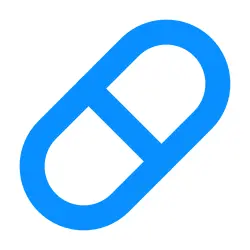Treatments (0)
Advice for Cold Sore
Cold sore signs and symptoms include:
- Typically found on or around the mouth, or on the fingers, these fluid-filled blisters or red, stinging, burning, or itching sores
- Painful, swollen, and deeply coloured red gums
- The first attack is frequently accompanied by a fever, flu-like symptoms, and swollen lymph nodes in the neck; repeated sores typically don't cause these symptoms.
- Itching and tingling where an earlier epidemic occurred
By seeing the affected area, your clinician should be able to determine whether you have a cold sore. Additionally, he or she might swab the cold sore to check for the herpes simplex virus in the fluid.
If you've ever had one, you'll probably be familiar with the symptoms, which include tingling, swelling, and blisters on or around your lips. Although it isn't always necessary to contact the clinician if you have a cold sore, you can go there to get a diagnosis.
HSV or a cold sore cannot be cured, but the pain they produce can be reduced by avoiding spicy or acidic meals, applying ice, and utilising over-the-counter medications. To lessen cracking and soften scabs, look for medications that contain numbing substances like phenol and menthol.
Your clinician could suggest an anaesthetic gel to ease pain or an antiviral oral drug to hasten healing or prevent recurrence if your cold sore is particularly uncomfortable or unpleasant. The antiviral medications that can be used for treatment include Valacyclovir and Acyclovir. When used within the first 48 hours of the outbreak, these oral drugs work better. Although Valacyclovir is more expensive, it is more effective since it is better absorbed in the digestive system. Topical versions of acyclovir is also available.
It's crucial to keep cold sores clean by gently washing with soap and water as needed because they can get complicated by a bacterial infection.
You should use the following caution when near people who have cold sores to prevent contracting HSV-1:
- Kissing, sexual kissing, and oral sex shouldn't be done with someone who has a cold sore.
- Never share anything with anyone, including straws, lip balm, lipstick, dishes, or razors.
- Before touching your lips, eyes, or genitalia, wash your hands.
Follow these steps if you've already been exposed to HSV-1 to lower your risk of developing cold sores:
A cold sore can be triggered by a temperature, which is why they are also referred to as fever blisters. Try to stay healthy.
Obtain adequate sleep: Your immune system is weakened by fatigue, which increases your risk of getting sick.
Put on SPF-containing lip balm: Avoiding an outbreak is possible if you protect your lips from sunburn.
Be cautious near children if you have a cold sore. Never kiss a baby until the cold sore has fully healed, and always wash your hands after using the restroom.
Cold Sore FAQs (4)
Without therapy, a cold sore typically heals on its own in one to two weeks. (2)
Despite the fact that some cold sores don't need to be treated, an over-the-counter or prescription antiviral helps hasten the healing process. These medications neither treat the virus that causes cold sores nor give relief right away. However, they can lessen both the frequency and length of cold sore outbreaks. Antivirals function best when administered as soon as a cold sore appears.
The herpes simplex virus (HSV) type 1 and, in some cases, the HSV type 2 are the culprits behind cold sores. Although they can appear anywhere on the body, these lesions frequently appear around the lips. Some persons may experience cold sores on their cheeks and around their nose.
If you have oral intercourse with someone who has a cold sore, you could also develop one in your genital region. Furthermore, if you contact a cold sore with your hands before touching your eye, you run the risk of contracting the virus and getting an eye infection.
The virus that causes cold sores can spread to another person through direct touch. It's crucial to remember that even if you don't have a blister or any other symptoms, you can still transfer the virus. Even though the virus is dormant in your body, you are still a carrier. When you have blisters, you are most contagious, therefore avoid close contact with anyone until the blister has fully healed and scabbed over.
Other people can sometimes see cold sores. A cold sore bandage is one way to hide a sore if you're self-conscious about it until it cures. Hydrocolloid technology is used in these non-medicated bandages to shield the sore from irritants. Bandages can be used in conjunction with cold sore treatment. A cold sore can also be hidden by using a natural lip color, heavy concealer, or powder.

